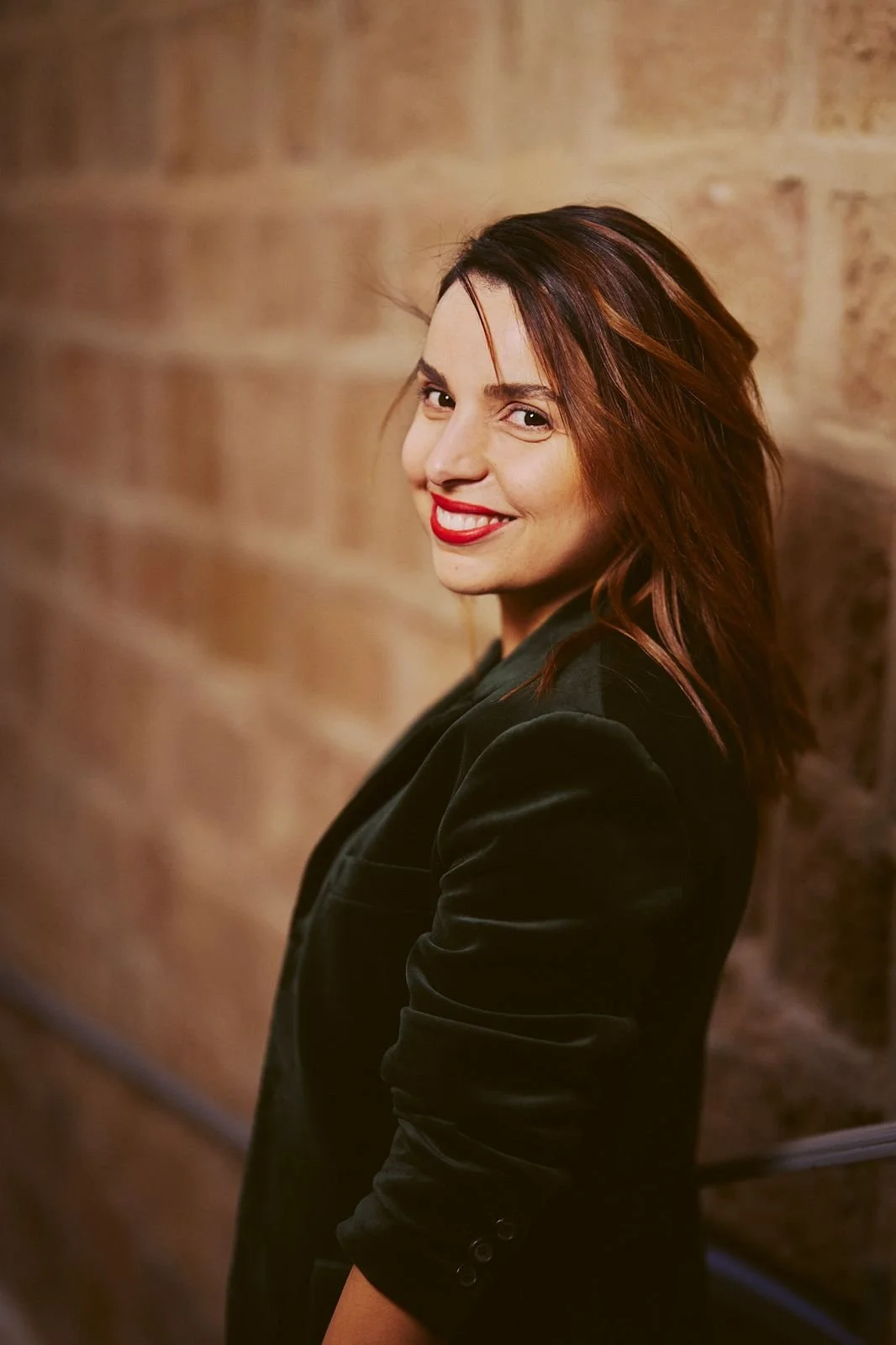sabrin Hojerat
Muslim Arab Female in her 30s
living in the Northern District.
In Bir al-Maksur, the Bedouin village where I was born and raised, there are many expectations. As a woman, I should be dutiful and respectful. I should dress modestly. I should not be loud or indiscreet. And I should get married early and have children.
I knew I was different from an early age, and as girls in my class gradually dropped out of school to get married – something unfathomable to me even then – I became all the more resolute in my pursuit of education. My turn soon came; my mother and father are first cousins, and at 18 I too was expected to marry within the family. I refused to marry so young, something which sounds brave but was in fact the only possible option – I have never conformed, and I suspect I never will.
I continued to defy expectations of a Bedouin woman. I studied for a BA in Mathematics, became a financially-independent teacher, obtained a Master’s Degree in educational consultancy, and worked at an NGO for at-risk youths, encouraging their recruitment into national service and the army by developing an understanding that they are part of Israeli society, and therefore they have a responsibility to contribute. It was hard for my family to accept my life choices, especially for my mother and her relatives because of numerous incidents of shaming, social pressure and even threats towards my family because of my work and the path I chose. One day, I discovered an incitement post against me had been uploaded to Facebook – someone had posted a photo of me with my soldiers from a commemoration for fallen soldiers. It was incredibly stressful. It had been posted because I was a woman in military service – they felt threatened that I would encourage more boys and girls to follow my non-traditional path, particularly because I still taught in the village.
But it sadly does not always stop at harassment. A beautiful teenage girl was murdered by a family member in one of the Bedouin villages where I manage an educational center. Disturbingly, I discovered that most of the girls believed that the victim was to blame, and that her killing was a natural consequence for her mistakes. They said “she must have done something.” I became increasingly distressed as I began to understand the deep roots of this societal problem, and I founded an initiative to combat violence against women in Bedouin society, building a team and attracting donors to the cause.
However, it didn’t take long for me to accept the sad truth: my impact as an educator was limited. No matter how much progress I made with students during the day, at the end of it they went home to their societies and families, undoing all of our work together. When I realised that real change in society would also require top-down policy and legislation, and not just opening another NGO or expanding my projects, I began my journey in government, first at the civil service cadet’s course (as its first Muslim woman), going onto the Prime Minister’s Office, the Ministry of Education, and finally in the Ministry of Culture and Sport.
After October 7, I couldn’t sit by and watch fellow Israelis suffer, whether Jew or Arab, and I knew that I had both the capability and responsibility to act. I spent months in emergency relief, managing an aid directorate for evacuees from both the North and South, and I simultaneously began to focus on the strategic use of culture and sport as a tool for resilience and rehabilitation of affected communities in the North and South.
My entire life, I have held tensions within me. My belief in promoting values of tolerance and justice, advocating equality of opportunity for women and pursuing shared society between Arabs and Jews, has always been my first priority. I’ve paid heavy personal and social prices for choices I have made, faced backlash from family, friends and community, and yet I always had faith that if I could make a positive difference, it is all worth it.
October 7 was a significant turning point for me. Although I deeply believe in public action and influence from within the governmental system, the events deeply shook me as a citizen. I fear for the future of our democracy and that the rifts in Israeli society will deepen, reinforcing internal hostilities. So, I recently made the decision to leave the government, after eight consecutive years in public service, and to move to the civil sphere - a place where I believe that democratic-liberal values can be promoted in a more direct and meaningful way.
In the meantime, I am working on my master's thesis in gender studies, investigating the sexuality and power of Arab women, and our potential to break down all the walls built around us.

